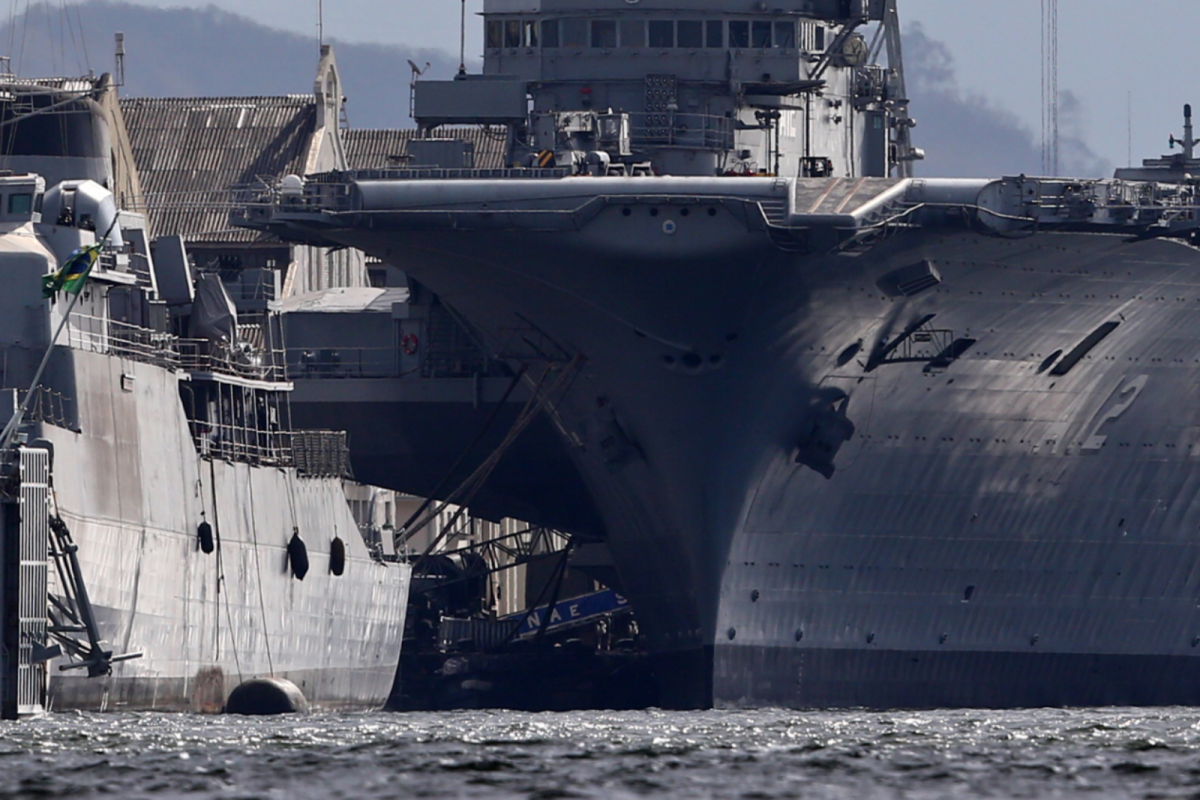Brazilian Navy stated it will sink ‘ghost’ aircraft carrier at high sea
The 32,000-ton Sao Paulo ship was dragged to Europe. The ship could...

Brazil sinks a decaying old aircraft ship in the Atlantic
The Brazilian Navy claimed it destroyed a decommissioned aircraft carrier in the Atlantic Ocean off its northeast coast, ignoring environmentalists’ worries that the rusting 1960s French-built ship would poison the sea and the marine food chain.
The 32,000-tonne carrier had been floating offshore for three months after Turkey refused its admission to be dismantled due to environmental concerns, and the ship was dragged back to Brazil.
The carrier was scuttled in a “planned and controlled sinking” late on Friday, the Navy said in a statement, that would “avoid logistical, operational, environmental and economic losses to the Brazilian state,” it said.
The Sao Paulo’s hull was sunk in Brazilian jurisdictional waters 350 kilometers (217 miles) off the coast, where the sea is 5,000 meters deep, to minimize the damage to fishing and ecosystems, according to the Navy.
Federal prosecutors and Greenpeace had petitioned the Brazilian authorities to halt the sinking, claiming that it was “toxic” due to hazardous materials, including 9 tonnes of asbestos used in the paneling.
“The sinking of the aircraft carrier Sao Paulo throws tons of asbestos, mercury, lead, and other highly toxic substances into the seabed,” Greenpeace said in a statement. It accused Brazil’s Navy of neglecting the protection of the oceans.
The Foch, a Clemenceau-class aircraft carrier capable of transporting 40 warplanes, served the French Navy for four decades.
Pepe Rezende, a defense specialist, and former foreign policy congressional aide stated that the carrier was purchased by the Brazilian Navy for $12 million in 1998 but required an $80 million refit that was never completed.
After the carrier was decommissioned, Sök Denizcilik Tic Sti, a Turkish marine recycling company, purchased the hull for $10.5 million but had to tow it back across the Atlantic after Turkey refused admission to their shipyard.
Brazil‘s Navy stated that it requested that the carrier be repaired at a Brazilian shipyard, but after an inspection revealed that it was taking on water and was at risk of sinking, the Navy barred the ship from entering Brazilian ports. It then made the decision to sink the Sao Paulo at sea.
According to Zilan Costa e Silva, the company’s legal representative in Brazil, disposal of the carrier is the obligation of the Brazilian state under the 1989 Basel Convention on the transboundary movement of hazardous materials.
The sinking, according to Greenpeace, violated the Basel Convention, the London Convention on the Prevention of Marine Pollution, and the Stockholm Convention on Persistent Organic Pollutants.
“The Brazilian Navy chose to harm the environment and lose millions of dollars rather than allow public inspection of the ship,” Greenpeace said, calling the sinking the “biggest breach of chemical and waste agreements ever committed by a country.”
Catch all the Business News, Breaking News Event and Latest News Updates on The BOL News
Download The BOL News App to get the Daily News Update & Live News.